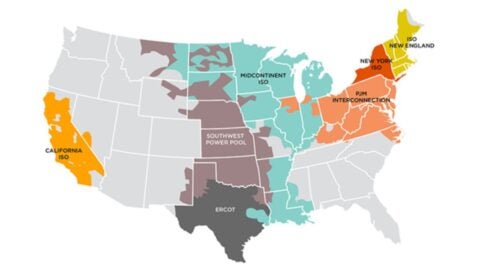Waxman and Markey Fire Starting Gun
This morning, Congressmen Henry Waxman (D-Ca.) and Ed Markey (D-Ma.) released a 600-page draft and put their committee on the path to passing climate legislation this year. The details will be worked out in the legislative process, but this is great progress.
If Congress succeeds in passing a cap on carbon emissions, we will address global warming and pump billions of dollars into clean energy and new jobs. If we fail — well, let’s not fail.
Here’s the response from EDF’s president, Fred Krupp:
Chairmen Waxman and Markey are experienced legislators who have focused on exactly the right issues to quickly build consensus and allow Congress to pass a strong bill this year.
We applaud the Chairmen for moving forward boldly and deliberately with their proposal for comprehensive legislation, and we look forward to working with them, the congressional leadership, and the Obama administration to help refine and pass a bill this year.













One Comment
I have serious reservations about just about any kind of cap-and-trade program for reducing GHG levels. The failure of Kyoto and and its relations as effective mechanisms for reducing GHG emissions is particularly instructive. It has been a disaster for a number of reasons, not the least because of the statistical impossibility of balancing emissions credit accounts with any meaningful reliability. In addition, it has spawned punitive industries in developing regions that are designed to generate emissions credits for sale to developed countries but which have also destroyed the livelihoods of many populations in these developing regions. These credit generating industries have often also been heavily polluting industries in their own right.
Larry Lohmann is the editor and main author of a recent major report on these problems, which is available through the Dag Hammarskjöld Foundation at this link: http://www.dhf.uu.se/FMPro?-db=pub1.fp5&-format=/publications/dd/apubdddetail.html&-lay=weblayout&-sortfield=pubyear&-sortorder=descend&-sortfield=pubissuewithoutcolon&-sortorder=descend&pubtype=development&-max=2147483647&-recid=66&-find=. Mr. Lohmann is a strong advocate of capping emmissions and of spending to increase alternative energy innovation, but sees carbon trading as a serious waste of time, money, and even lives.
So, I would like to know how any cap-and-trade program in the US, much less the world, could possibly work to overcome these same sorts of problems, which amount to gaming the system for economic benefit totally at the expense of any possible environmental gain?